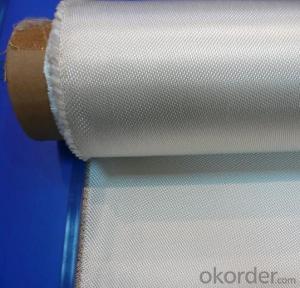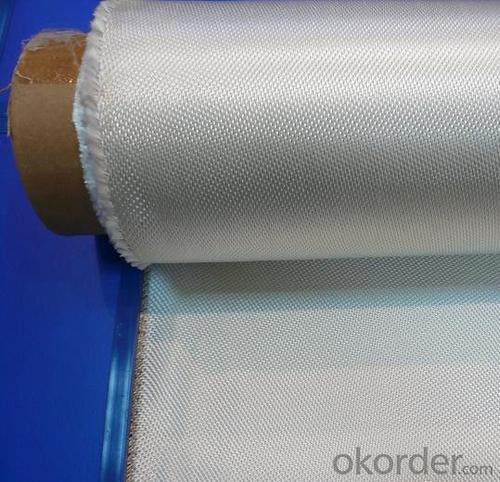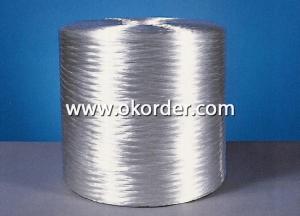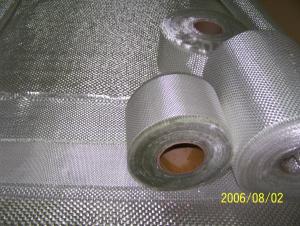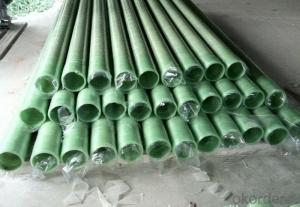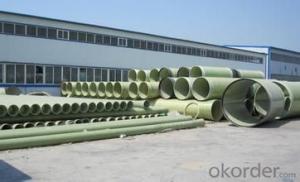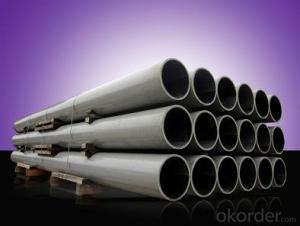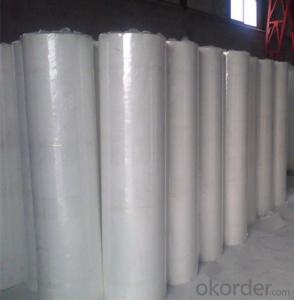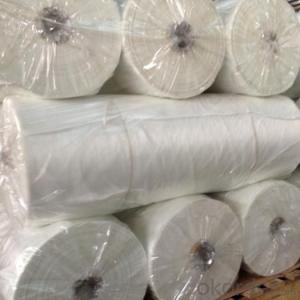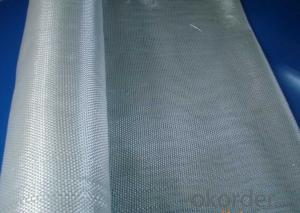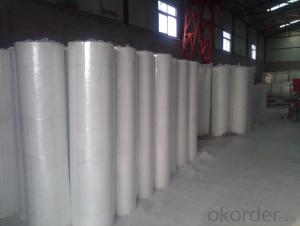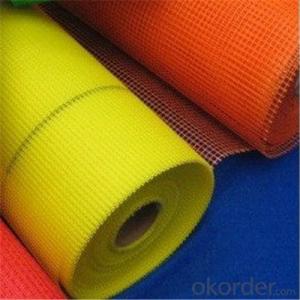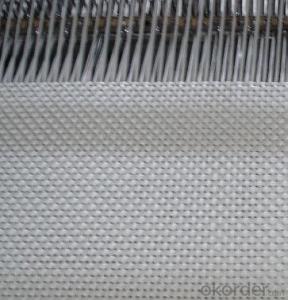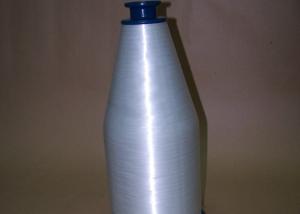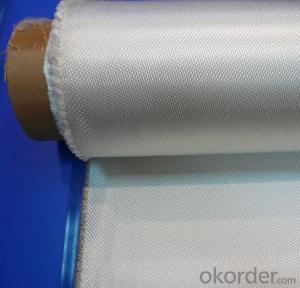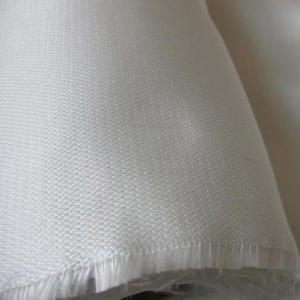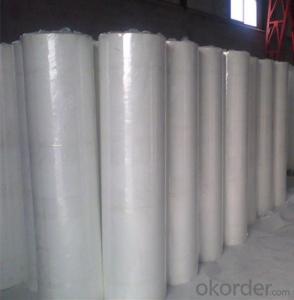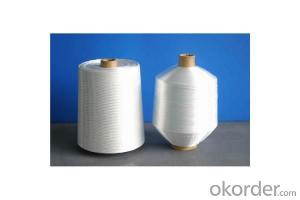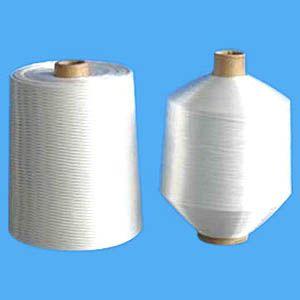Fiberglass Yarn Reinforced Fiberglass Fabric for Machinery and Metallurgy
- Loading Port:
- Shanghai
- Payment Terms:
- TT OR LC
- Min Order Qty:
- 500 m²
- Supply Capability:
- 50000 m²/month
OKorder Service Pledge
OKorder Financial Service
You Might Also Like
Fiberglass Fabric for Machinery and Metallurgy
Fiberglass Fabric Introduction:
Fiberglass fabric is weaved by high quality fiberglass,as a kind of engineering material,which is
many excellent characteristics:
flame-resisting,corrosion resistant,high strength,heat resistance.stable structure,good chemical resistance,durability.
Fiberglass Fabric Features:
Warp and weft yarns are parallel arrangement as flat situation, with uniform tension;
Fiber is aligned with large consistency, stable and easy operation;
Good moldability, fast and complete wet out in resins, resulting in high productivity;
Good transparency and high strength of composite products.
Fiberglass Fabric Specification:
mark | Fiber consistency(ends/ cm) |
Area weight (g/ m2) |
Thick-ness (mm) |
Width (cm) |
Length (mm) | Breaking strength(N)≥ |
weave | |||
Warp direction | Weft direction | Warp direction | Weft direction | |||||||
EW200 | 16 | 12 | 200±20 | 0.2 | 90-130 | 300-1200 | 980 | 980 | ||
EW210 | 16 | 12 | 200±20 | 0.21 | 90-130 | 300-1200 | 1080 | 1080 | Twill weave | |
Plain weave | ||||||||||
EWR360 | 3.2 | 1.8 | 354±18 | 0.35 | 50-300 | 100 | 2000 | 2000 | ||
EW280 | 16 | 10 | 280±28 | 0.26 | 90-130 | 300-1200 | 1800 | 1800 | ||
EW300 | 14 | 10 | 320±32 | 0.3 | 90-130 | 300-1200 | 1500 | 1500 | ||
EW430 | 20 | 12 | 420±42 | 0.43 | 90-130 | 300-1200 | 2000 | 2000 | Broken twill | |
EWR136 | 10 | 10 | 136±13 | 0.136 | 100 | 200 | 850 | 850 |
Plain weave | |
EWR200 | 8 | 7 | 200±20 | 0.21 | 100 | 200 | 1200 | 1200 | ||
EWR400 | 3.6 | 3.2 | 400±30 | 0.4 | 100 | 50-100 | 2500 | 2500 | ||
EWR600 | 2.6 | 2.5 | 600±50 | 0.6 | 100 | 40KG | 4000 | 4000 | ||
EWR580 | 2.5 | 2.3 | 576±29 | 0.58 | 100 | 40KG | 3850 | 3850 | ||
EWR800 | 1.8 | 1.8 | 800±60 | 0.8 | 100 | 40KG | 4600 | 4600 | ||
Product Show
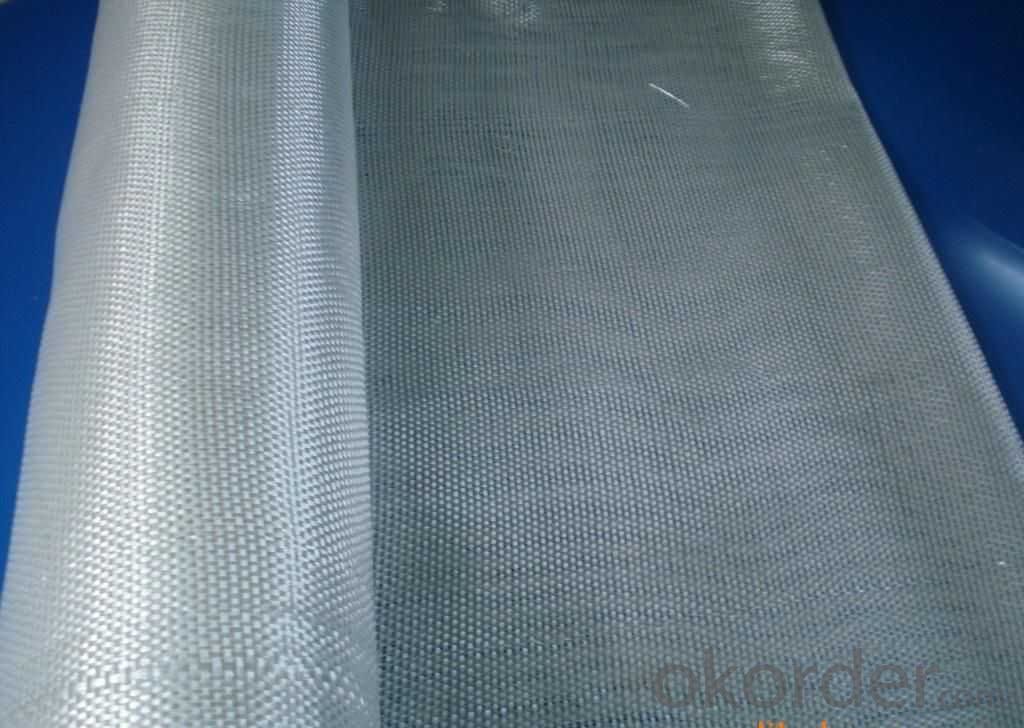
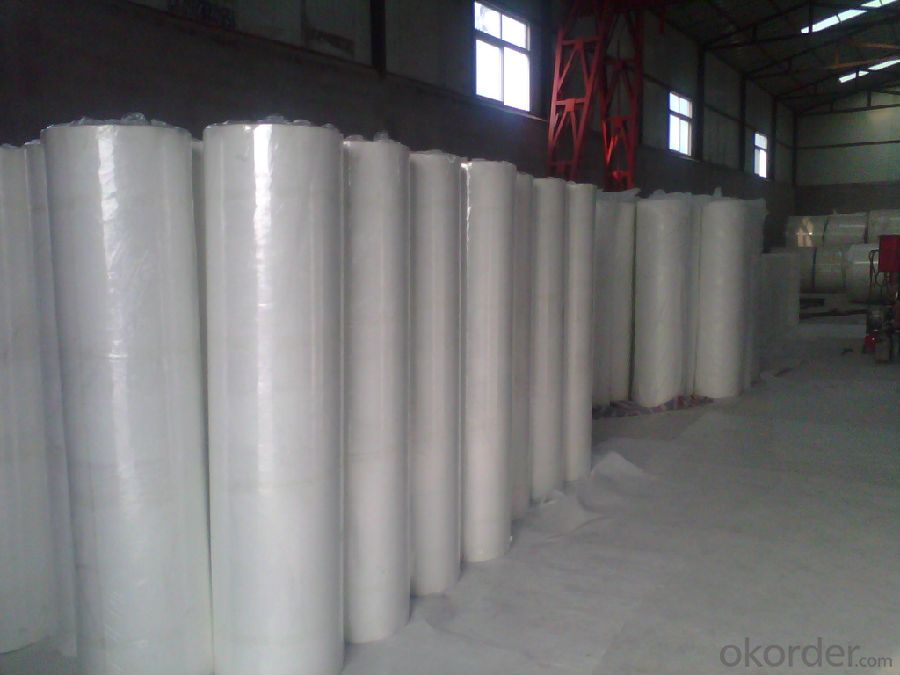
Fiberglass Fabric Usage:
E-glass woven roving is a schistose double faces reinforcement fabric that is weaved into from roving in directly.
E-glass fiber fabric (thin fabrics with thickness from 0.025 to 0.09mm) is suitable for electrical isolation mica product, wax cloth as the reinforcement materials.
E-glass woven roving applys to all kinds of polyester reinforcement system, (such as unsaturated polyester resin, vinylite,epoxy resin and phenolic resin.
E-glass woven roving is a high performance reinforcement material. It is widely used in hand lay-up and machinery processing products, (such as vessel, container, airplane and vehicle component, furniture, athletic facilities and other industry.
FAQ
1.Package of Fiberglass Fabric?
Fiberglass fabric is wound on a paper tube with inner diameters of 50. 8, 76 or 152mm. Each roll is wrapped in a plastic bag, then to be packed in a carton box. The rolls are to be horizontally placed.
Width (cm): 90, 100, 127
Length (m): 100, 200, 300, 400
2.Storage of Fiberglass Fabric?
Store rolls in a cool, dry location
Protect rolls from weather and other damage.
3.If sample available if needed?
We aim to offer our customer best Products&Service,samples are allowed if necessary.
- Q: Can fiberglass yarn be used in acoustic insulation?
- Yes, fiberglass yarn can be used in acoustic insulation. Fiberglass is a popular material choice for acoustic insulation due to its excellent sound absorption properties. Fiberglass yarn can be woven into various forms, such as mats or boards, and used as a layer in acoustic panels or insulation materials. The fibrous structure of the yarn helps to trap and absorb sound waves, reducing noise transmission and enhancing soundproofing capabilities. Additionally, fiberglass is fire-resistant and durable, making it a suitable choice for acoustic insulation applications in buildings, industrial settings, or automotive industries.
- Q: Can fiberglass yarn be used in electrical connectors?
- Yes, fiberglass yarn can be used in electrical connectors. Fiberglass yarn is a type of insulation material that offers excellent electrical insulation properties. It has a high dielectric strength and is resistant to high temperatures, making it suitable for use in electrical connectors where insulation is crucial. The fiberglass yarn can be woven or braided around the conductors to provide insulation and protection against electrical short circuits. Additionally, it is also resistant to chemicals and abrasion, making it a durable choice for electrical connectors.
- Q: Is fiberglass yarn resistant to fungus?
- Yes, fiberglass yarn is resistant to fungus. This is because fiberglass is made from inorganic materials, primarily glass fibers, which do not provide a suitable environment for fungus to grow. Additionally, fiberglass yarn is typically coated with a special resin or finish that further enhances its resistance to fungus and other forms of biological degradation. Therefore, fiberglass yarn is commonly used in applications where resistance to fungus is important, such as in outdoor fabrics, insulation materials, and composite structures.
- Q: Is fiberglass yarn resistant to extreme weather conditions?
- Indeed, extreme weather conditions are generally resisted by fiberglass yarn. Fiberglass, an enduring and weather-resistant substance, is capable of enduring a vast array of weather conditions, encompassing heat, cold, rainfall, and UV radiation. It is renowned for its exceptional thermal and chemical durability, as well as its capacity to sustain its strength and integrity in challenging surroundings. Fiberglass yarn often finds utility in outdoor domains, including the construction, marine, and automotive industries, wherein it confronts extreme weather conditions. Nonetheless, it is crucial to acknowledge that the degree of resistance can fluctuate contingent upon the specific composition and manufacturing procedure of the fiberglass yarn.
- Q: Can fiberglass yarn be used in marine applications?
- Fiberglass yarn is indeed applicable in marine settings. Its exceptional strength and durability earn it recognition as an appropriate material for diverse marine uses. Boat hulls, decks, and other structural elements are commonly fabricated using fiberglass yarn. This material exhibits resistance to saltwater corrosion and possesses a remarkable tensile strength, making it well-suited for enduring the demanding conditions of the marine environment. Moreover, the lightweight nature of fiberglass yarn proves advantageous in marine applications by reducing overall structure weight and enhancing fuel efficiency. In conclusion, fiberglass yarn stands as a dependable and flexible material for marine purposes.
- Q: How does the moisture resistance of fiberglass yarn compare to other materials?
- The moisture resistance of fiberglass yarn is generally considered to be excellent when compared to other materials. Fiberglass is inherently water-resistant and does not absorb moisture easily. This characteristic makes it suitable for various applications where exposure to moisture or humidity is a concern. Unlike natural fibers such as cotton or wool, which tend to absorb water and become weakened, fiberglass yarn remains strong and durable even in wet conditions. Additionally, fiberglass yarn does not promote the growth of mold or mildew, making it an ideal choice for areas with high moisture levels. Overall, the moisture resistance of fiberglass yarn is superior to many other materials commonly used in textiles and other industries.
- Q: Can fiberglass yarn be used for reinforcement purposes?
- Indeed, reinforcement purposes can make use of fiberglass yarn. Renowned for its exceptional strength and durability, fiberglass yarn proves to be an optimal material for reinforcing an array of products and materials. It finds wide utility in the construction industry, where it reinforces concrete structures, and also in the manufacturing of fiberglass composites utilized in automotive parts, boat hulls, and aerospace components. Additionally, fiberglass yarn can fortify fabrics, ropes, and cables, bestowing upon them heightened strength and resistance to tearing or breaking. Ultimately, fiberglass yarn stands as a versatile substance that effectively enhances the mechanical properties of diverse products when employed for reinforcement objectives.
- Q: How does the strength of fiberglass yarn compare to other materials?
- Many consider fiberglass yarn to have greater strength than numerous other materials. It is renowned for its remarkable tensile strength, enabling it to endure substantial stress or pulling forces without fracturing or stretching. In comparison to materials such as cotton, wool, or nylon, fiberglass yarn is generally significantly stronger. Moreover, fiberglass exhibits exceptional resistance to chemicals, moisture, and heat, rendering it an exceedingly durable and adaptable substance. It is extensively utilized in diverse applications that prioritize strength and durability, including the production of boats, aircraft, automotive components, and construction materials.
- Q: Can fiberglass yarn be used for making upholstery cushions?
- Indeed, upholstery cushions can be fashioned using fiberglass yarn. Renowned for its remarkable robustness and endurance, fiberglass yarn proves to be a fitting substance for such cushions. It offers exceptional support and resilience, guaranteeing the maintenance of the cushions' form and composition throughout the passage of time. Furthermore, fiberglass yarn exhibits resistance against moisture, mildew, and insects, rendering it a pragmatic selection for upholstery purposes. Nevertheless, it is crucial to acknowledge that fiberglass yarn can possess an abrasive nature. Consequently, it is commonly employed in conjunction with gentler materials to furnish comfort and avert any potential skin irritation.
- Q: Is fiberglass yarn suitable for use in automotive composites?
- Yes, fiberglass yarn is suitable for use in automotive composites. It is a commonly used material due to its high strength-to-weight ratio, excellent resistance to chemicals and temperature, and its ability to be easily molded into different shapes. Fiberglass composites provide structural support and enhance the overall performance and durability of automotive components.
Send your message to us
Fiberglass Yarn Reinforced Fiberglass Fabric for Machinery and Metallurgy
- Loading Port:
- Shanghai
- Payment Terms:
- TT OR LC
- Min Order Qty:
- 500 m²
- Supply Capability:
- 50000 m²/month
OKorder Service Pledge
OKorder Financial Service
Similar products
Hot products
Hot Searches
